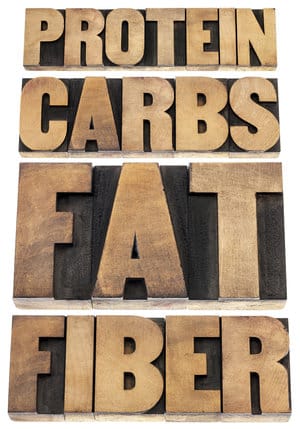In the past 7 years of working as a Certified Nutrition Specialist in a Functional Medicine practice one of the most common questions I am asked is, “what should I eat?”.
Even though there are plenty of recommendations available to help people answer their question, there is so much conflicting information, most people end up being more confused than when they started.
To answer the question, first it is important to distinguish between whole foods and processed foods. Whole foods are as close to their original form as possible. Processed foods are mostly made in factories and have long lists of ingredients, many of which we have no idea what they are.
Think of the difference between eating a piece of broccoli, which is a whole, unprocessed food, and eating a granola bar. Both are seemingly healthy but the granola bar is VERY far from its original form and the broccoli is pretty darn close. Due to this fact, the broccoli will always be superior to the granola bar nutritionally, even if the granola bar is fortified with fiber, vitamins and minerals.
If you look at most of the information out there online and in books you would think that there are entire foods groups that are bad. One example is DAIRY.

This is a much misaligned food group! But there is evidence humans have been consuming dairy for over 30,000 years. That is way longer than the 10,000 years we have been eating grains. The issue with dairy is that almost all of the stuff you find in the stores has been highly processed, and comes from cows confined to crowded and dirty indoor facilities as they are pumped up with hormones and antibiotics. This has come to the point where most milk you buy in the store, which has been homogenized and ultra-pasteurized, is a completely different food from let’s say fresh, raw goat milk from goats living on a clean pasture. Do you see the difference?
So in the case of dairy, if it is indeed from healthy animals and minimally processed, is it actually bad?
I argue that if it is a whole food from a quality source, then it is inherently GOOD.
Whether or not it is right for YOU is another question.
But to denigrate any food that we humans have been consuming for thousands of years seems a little irresponsible.
Mind you, I am excluding all junk food.
Processed junk that comes in a box is not considered “food” in my book. Neither is fast food. Those food-like substances are “bad”. Do we eat them sometimes? Perhaps. But let’s recognize them for what they are. Junk. I think we can all agree on that.
Now that we have found a common ground can we stand up and celebrate the beautiful diversity of the human race?
We are not all the same and we do not all have the same needs. Some people are going to do great on a vegetarian diet and others wouldn’t last a day.
Can we recognize that any food that is produced in a sustainable and regenerative environment and is as close to its original form as possible has the potential for being beneficial to any human?
OK. Let’s do it then. There is no such thing as a bad “whole” food!
I think where the problems arise is often when we consider macro-nutrients. Since some people feel better with more protein, for example, and others feel better with less, they then project their experience out to everyone else. So, if someone really feels better minimizing protein and eating a vegetarian diet, they assume everyone should be doing that. And it’s just not the case.
The goal is to find the macro-nutrient ratios that work for you, and don’t worry about everyone else. And remember that this can change over time so it’s good to pay attention to how you feel related to what you are eating.
One way you can start figuring out what macronutrients are right for you is to take the following quiz:
https://quiz.tryinteract.com/#/5f8b07686213b600144b21c5
For now, I’m just going to list some good sources of each of the 3 macro-nutrients for your reference. This will make it easier for you to assess how you are eating (are you eating too much of one particular macro and not enough of another?) and it will help you discover new ways to to eat.
Below I list good sources of protein and fat and instead of “carbs”, I list “Fiber”. There are carbs in other foods that do not contain fiber, for example, white rice or yogurt, but I would like everyone to think in terms of fiber to make sure that most carbs do come from high-fiber sources.

Good Sources of Protein
- Grass-fed beef, bison, goat, lamb, and dairy
- Pasture-raised chicken, turkey, duck, pheasant, goose, etc, and eggs
- Wild game such as venison, elk, boar, etc
- Wild-caught fish and seafood
- Legumes (ideally soaked)
- Nuts and seeds (ideally soaked)
- Whole grains, ideally sprouted or fermented
- Fresh vegetable juice
Good Sources of Fats
- Grass-fed, pasture-raised, or wild meat, seafood, and fish
- Grass-fed, raw, organic dairy
- Nuts and seeds (ideally soaked)
- Fatty fruits (coconut, avocado, olives)
- Organic, unrefined sunflower, flax, walnut, sesame, and pumpkin seed oils. Never heat these oils!!
- Olive, avocado, macadamia, and almond oils
- Coconut oil, lard, tallow, bacon fat, ghee and butter: good for cooking
Good sources of Fiber
- Vegetables and more vegetables
- Fatty fruit (avocado, olives, coconut)
- Dried and fresh fruit
- Legumes (ideally soaked)
- Whole grains, ideally prepared properly (sprouted or fermented)
- Nuts and seeds (ideally soaked)
In the quest to discover the answer to, “What should I eat?”, I do suggest you go through the process of evaluating if something is a whole food or processed food and then to assess your macronutrients. And finally I recommend paying attention to how you feel. If you do these 3 steps you will be much closer to finding the answer.
Just be aware that what works for you today may not work for you next summer. As the seasons change, as your body changes, and as your habits change, the ideal macronutrient ratio for you may shift, so it’s good to always pay attention and not just blindly follow one way of eating because that’s what you have always done.
So, next time you eat a meal or snack, take note of what’s on your plate.
- Is is mostly whole, unprocessed foods?
- Is there enough protein
- Is it good quality fat?
- Is there enough fiber (hint most people need between 25-35 grams/day of fiber)?
And conversely, if you do include enough protein, fat, and fiber for YOU:
- How do you feel?
- Do you have ample energy, good mental focus, and an even-keeled mood?
- Do you feel satisfied and notice less cravings?
If you are answering yes to these questions most of the time you are probably on the right track!
